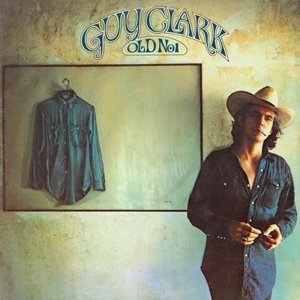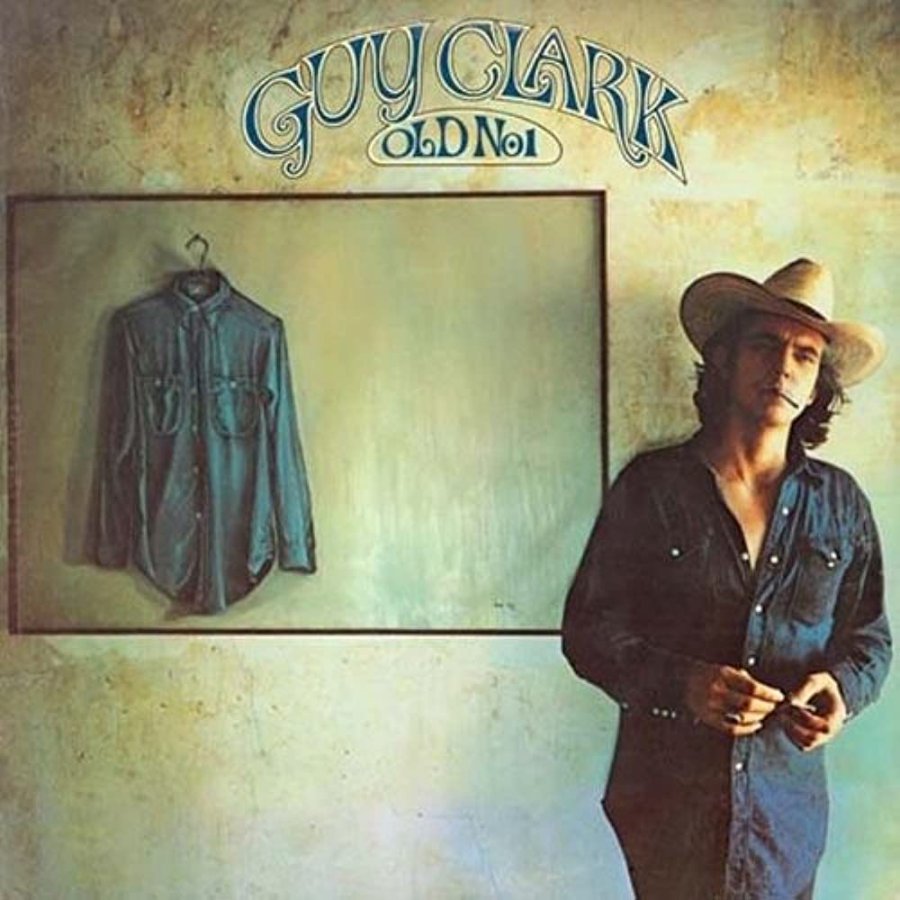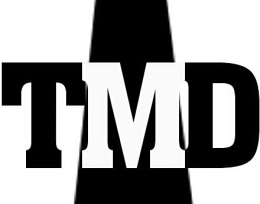Nearly every album reviewed through this feature thus far has contributed to our general discussion of country music – even though plenty have also stood as personal artistic statements and predated the album concept in country music in general. From a more general standpoint, we’ve explored two extremes of outlaw and pop-country that were not at war with one another (as the popular everlasting tale often suggests), but rather working in tandem to provide quality material from same-kind-of-different perspectives; that’s the real beauty of country music in the ‘70s. It’s fitting, then, that we’re ending our discussion of this particular decade that sits at neither side of the divide, but rather sits somewhere in a third category: one that’s also inspired plenty of artists to come through this feature. It just so happens to be one of the warmest, most comforting releases we’ll discuss for this feature, too. Onward!

There are certain songwriters who just have a unique style, reflected not necessarily in what they write about, but how they write about it. It’s further reflected in how they present it beyond just the words on paper, if they choose to at all. A broad statement, I admit, but it’s rarer to actually hear than one might think. These writers, simply put, represent the chains that connect eras of music history together, drawing from their own inspirations while acting as new origin points of discovery and influence for the next generation. It may not take a lot of time to understand the style or its subsequent appeal. but it can, and will, take years to establish the legacy.
So I guess it’s fitting, then, that as country music’s outlaw movement erupted in full swing while older, traditional artists fought against the pop-country crossover acts, a third group of young singer-songwriters also infiltrated Nashville. Most of them hailed from Texas and wanted more to write a well-crafted song than to have a hit with it. The dream, of course, should have allowed for both, but that simply wasn’t an attainable reality. And yet, in a weird way, some of them achieved that dream regardless.
Let’s not romanticize it too much too quickly, though. When Guy Clark was a little boy in the small west Texas town of Monahans, his family didn’t own a record player and spent their evenings reading poetry to one another instead. And though his start performing in folk clubs through his early 20s eventually led to him achieving success as a songwriter for other artists, his own albums sold poorly. He toured at coffee houses and campuses to make ends meet.
Still, he had respect. It won’t feed a person, but in this line of work, it does establish a needed base for what’s next and what will last beyond the limits established within a ten-year town. And in the early ‘70s, the Exit/In was the premier showcase folk club in Nashville, the place where artists had to work to be able to command that stage in the first place – not through their showmanship, but through their writing. It’s the stage where Clark would refine his talents and where the next generation of writers, like Rodney Crowell, would find their new sources of inspiration. Of course, Clark and his wife, Susanna, also opened their home as an unofficial gathering place for these like-minded musicians to hone their craft; a place to foster and encourage growth for those who knew the power of a song.
In a way, that’s the perfect way to summarize Clark’s unique artistic style. It’s careful and unhurried, with a strict attention to detail that pulls from a warm Texas tradition in sound while the lyrics feel finely honed. And it’s all delivered with a dusty drawl, at that, creaky but inviting, with a warm tenderness that nevertheless suggests years of wisdom and experience behind it.
It’s in those differences where the magic comes out. For example, contemporary Townes Van Zandt’s work also feels unhurried in its pacing in trying to capture the right lightning strike for his prose, but it’s more poetic and free-ranging, meant less to sound warm and inviting and more moody and contemplative instead. This isn’t meant to make a direct comparison, but rather show the attention to the craftsmanship, pride, and most importantly, identity that went into these writers’ works that emanated out of this time period.
And it’s that stylism that always makes revisiting Old No. 1 so remarkably easy, a personal favorite of mine from over the years that feels oddly timeless in its magnetism, even if Clark’s observational detail is rooted in memories long past. Perhaps it’s because, like with Honky Tonk Heroes, I’ve heard these songs covered plenty before, enough to where this feels less like a cohesive debut album and more like a greatest hits album that nailed it from the start. And yet, unlike that album, reviewing this feels far easier. Maybe it’s that uniform consistency directly benefiting from its creator’s vision, or maybe it’s those wide-angled slices of real life coming alive through his eyes.
It could also be that its lightweight, hangdog struggle is simply just infectious, helped not only by Clark’s rough-edged rollick offering enough charm to make his stories compelling, but also the generally rounded, warm production. Clark and his contemporaries certainly aimed to make waves in Nashville, but the sound is reflective more of his Texas roots: warm and sunny in the simple acoustic picking and feel-good grooves, with a plethora of fiddle and harmonica to round out the sound and help its dustier edges settle. Even for a debut, it feels like an album meant for an older audience in how sprawling and relaxed it can feel, which generally makes the few moments of tension in its slight crescendos feel all the more urgent. You hear it on more potent hooks like “L.A. Freeway,” “She Ain’t Going Nowhere” and “Desperadoes Waiting For a Train” in their respective struggles for something more, but even a more tender moment in “Like a Coat From the Cold” feels urgent in how deeply vulnerable it’s willing to be in all of its confessional glory.
Between the gentle waltz cadence of “That Old Time Feeling” that’s equal parts nostalgic and sad, the early morning feel of the creaking acoustics and fiddle on “L.A. Freeway,” the weathered potency of “Desperadoes Waiting For a Train,” and the rounded bass adding a somber frankess to “Instant Coffee Blues,” there are so many good tonal choices across the board. And it’s not just in those tired moments: “A Nickle For the Fiddler,” “Rita Ballou,” and “Texas 1947” are all jumpier moments of levity in their own respective manners. It’s an acoustic-based record where its power and amplification stems from its subtlety overall.
Granted, that paradox is also a twofold statement, because while Clark’s storytelling detail is generally direct, his intentions and executions can feel wildly different from other artists in this vein. He’s never one to be necessarily fanciful, but there is something cinematic about his framing in the way it can unravel the complexities of specific characters; he’ll paint a picture and tell a story, but the moral of the story is a personal reward waiting to be gleaned.
And, though his style is character-based, he’s never one to paint them in need of sympathy or empathy. If that comes, it will slowly unravel itself as an element subject to audience interpretation, but these feel more like stolen snapshots of life rolling on as it pleases. And in those moments reveal the titular character who can hold her own with the cowboys and play them for fools with a wink and a smile on “Rita Ballou,” or the lonely, unsatisfying feeling of a temporary connection on “Instant Coffee Blues” that frames neither party in the right or wrong. For as much as country music is traditionally associated with real life, it’s rarely felt so profoundly human as it has on Clark’s songs and this specific album.
That, of course, means we’re sometimes robbed of deeper closure, because life guarantees no happy or sad endings to unfinished stories; it wouldn’t be life then. It’s why I love the hungry, yearning desperation that frames this album. For as much as “L.A. Freeway” has been noted as Clark’s own personal experience from living in California and working in the Dopera Brothers’ famous Dobro factory, taken just as a song, I love how it’s never clearly noted if the character’s desire to leave and start over is an actual reality or just wishful thinking as he runs back through both pleasant and unpleasant memories of an otherwise average life.
Or take the similar sentiment expressed in “She Ain’t Going Nowhere,” which nevertheless is completely different in its framing in how it captures a woman presumably trying to escape a bad home life with more at stake in aiming for a successful attempt … only for the song to plainly spell out how it’s all for naught, a reflection of a sadly common reality. “Let Him Roll” arguably takes it even further, adopting a relatively low-key, straightforward acoustic composition to paint a picture of a worker crushed under the weight of poverty and his own vices.
And yet, if we’re take this album as a snapshot of life itself, there’s definitely bound to be lows and highs, fleeting as they feel but worth hanging onto regardless. The details and imagery do feel more purposefully scattershot on tracks like “A Nickel For the Fiddler” and the balanced “Old Time Feeling,” and while the latter can feel fairly windswept in its drawn-out beauty, the former cut is a bit too lightweight to connect better with the rest of the album; it’s still good, but it is a weaker moment for me. But it’s that search of a human connection that gives the album its stakes to fight on through – arguably the meaning of life itself. It’s why for me, “Desperadoes Waiting For a Train” will always be the anchoring centerpiece, another track told from personal experience in dedication to an oil-well driller who frequented a hotel Clark’s grandmother ran. It’s the sort of tribute to a mentor and friend that feels intensely moving not only in its longview, slice-of-life framing from beginning to end, but also in how fragile Clark’s own delivery can feel in trying to add some type of legendary status to an otherwise normal person who was so much more to him.
Maybe that’s a fitting way to end, given that for as decidedly straightforward and simple as Clark’s snapshots of life were, the emotions he was able to conjure said so much about his style and magnetism regardless. It’s an album where one can’t help but romanticize their own legend of him in how well-crafted these stories are and how note-perfect the presentation is in all of its creaking glory. It’s not Clark’s only example of excellence or the extent to which his talents ran, but it certainly points to the well-honed craftmanship that defined his work. Even now, it lives up to its title.
Join me next time, where we’ll jump into our next point of discussion: the ‘80s, starting with Rosanne Cash’s Seven Year Ache.


This is such an interesting album in that I’ve heard most of these songs before, either by Guy Clark himself or by other artists (I particularly love Vince Gill’s version of “Rita Ballou” and Steve Earle’s tribute album, “GUY,” is excellent), but I’ve never listened to the album front to back (this is another weird one on Spotify and included as a compilation album along with “Texas Cookin'”).
Given that I wouldn’t classify these songs as particularly uplifting or hopeful (melancholic might be a more appropriate term for many of these songs), I find this album to be quite comforting and easy to listen to. As you would expect, the songwriting is excellent and the production fits the songs very well.
LikeLiked by 1 person